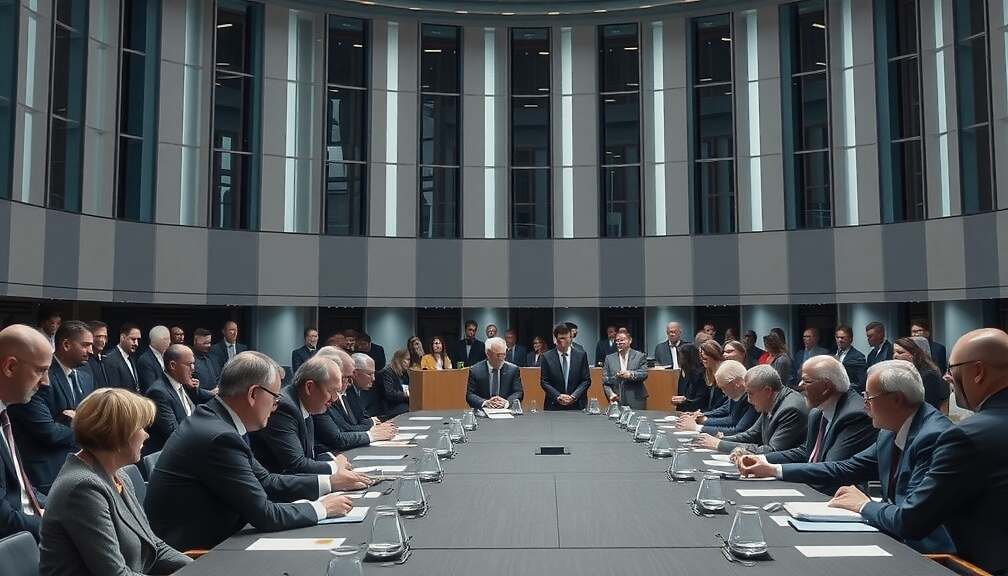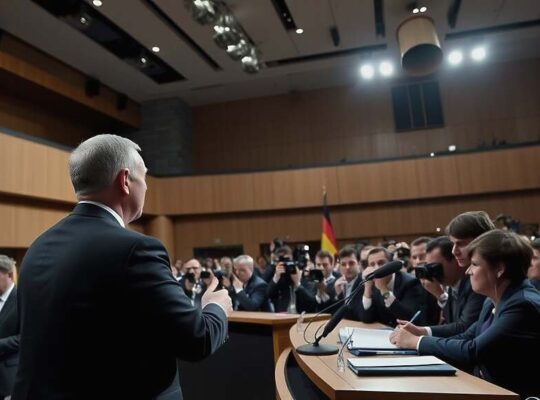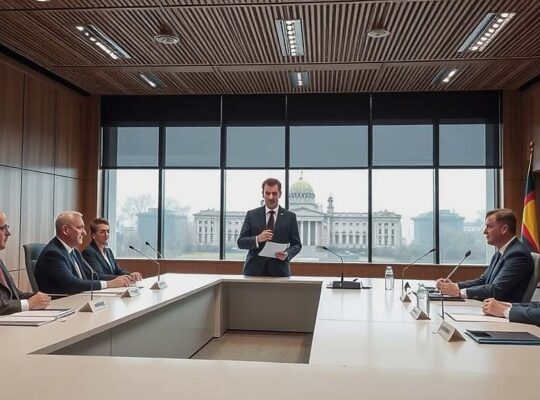A growing chorus of prominent German politicians from across the political spectrum are advocating for the full and immediate utilization of approximately 260 billion euros in frozen Russian Central Bank assets to support Ukraine’s defense and reconstruction. The calls come ahead of a planned meeting between US President Donald Trump and Russian President Vladimir Putin in Alaska this Friday.
Leading figures from the Christian Democratic Union (CDU), Christian Social Union (CSU), Social Democratic Party (SPD) and Green Party have publicly expressed support for accessing the funds, currently largely held in Europe. While earnings generated from the management of these assets are being directed to Ukraine, the principal amount remains untouched.
Politicians like Boris Rhein, Minister-President of Hesse (CDU), Norbert Röttgen, Deputy Leader of the CDU parliamentary group and Thomas Röwekamp, Chairman of the Defense Committee, are urging a more decisive approach. They argue that existing procedures are insufficient and call for the complete confiscation and deployment of the assets. Others, including Jürgen Hardt, CDU foreign policy spokesperson and Roderich Kiesewetter, CDU rapporteur on foreign affairs, emphasize the need for complete asset seizure.
Annegret Kramp-Karrenbauer, former CDU party leader, highlighted the potential strategic impact, suggesting that such a move could demonstrate to President Putin that his strategy of attrition will not succeed and even that funds could be used to procure American weaponry, potentially influencing President Trump. Thomas Erndl, head of the CSU’s defense working group, also voiced support for utilizing the assets.
The SPD also has advocates for this position. Ralf Stegner argues that the frozen funds should be used immediately to finance Ukraine’s reconstruction, adhering to the principle of the polluter paying for the damage caused. Andreas Schwarz, an SPD member of Parliament, indicated his inclination to support such a measure.
From the Green Party, Britta Haßelmann, co-leader of the parliamentary group, stated that utilizing all frozen Russian assets should be a key discussion point in ongoing negotiations.
Sources in Brussels indicate that efforts to access the frozen funds have, until now, encountered resistance, particularly from Germany and France. The growing pressure from within Germany’s leading parties suggests a potential shift in policy is gaining momentum.












